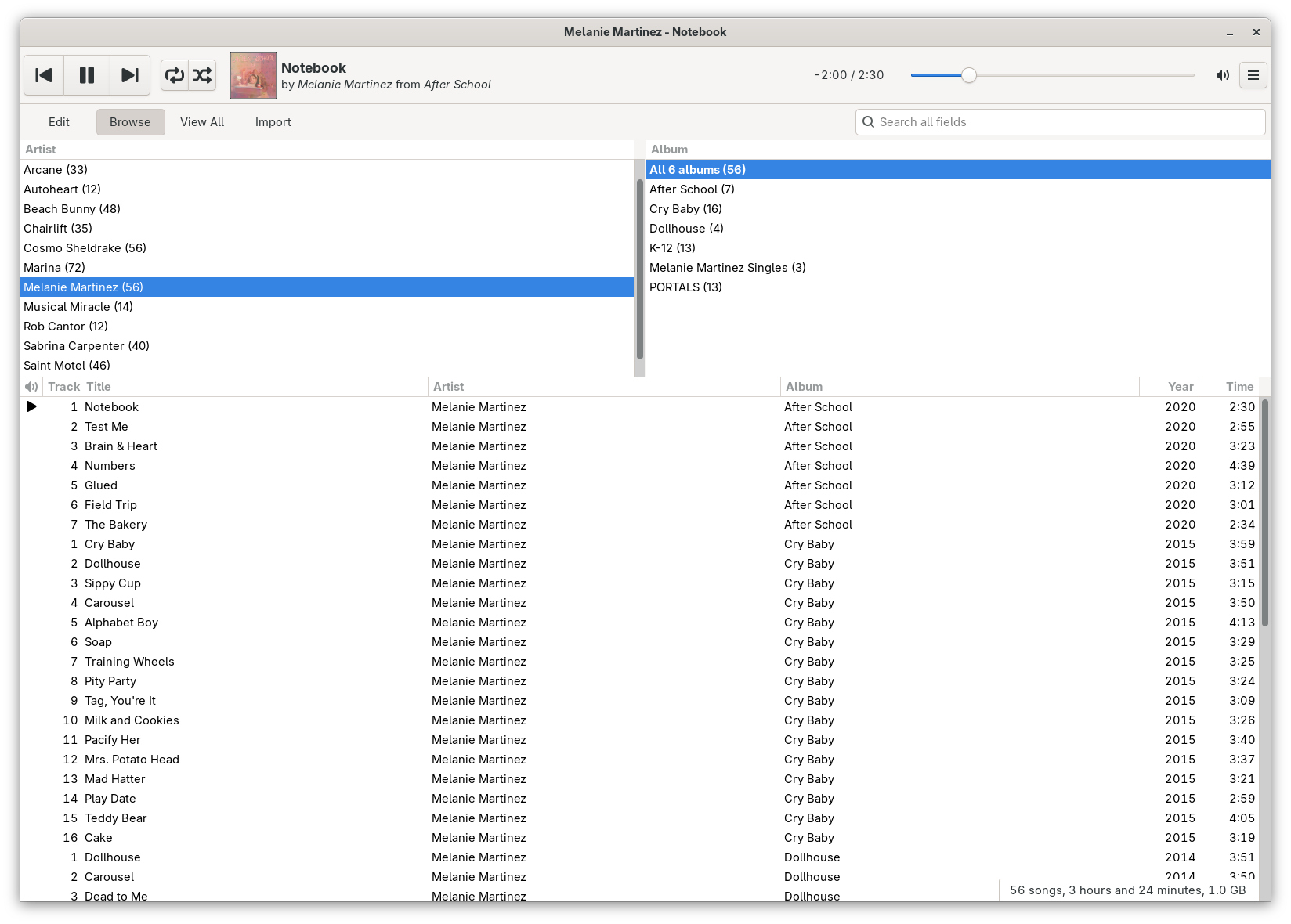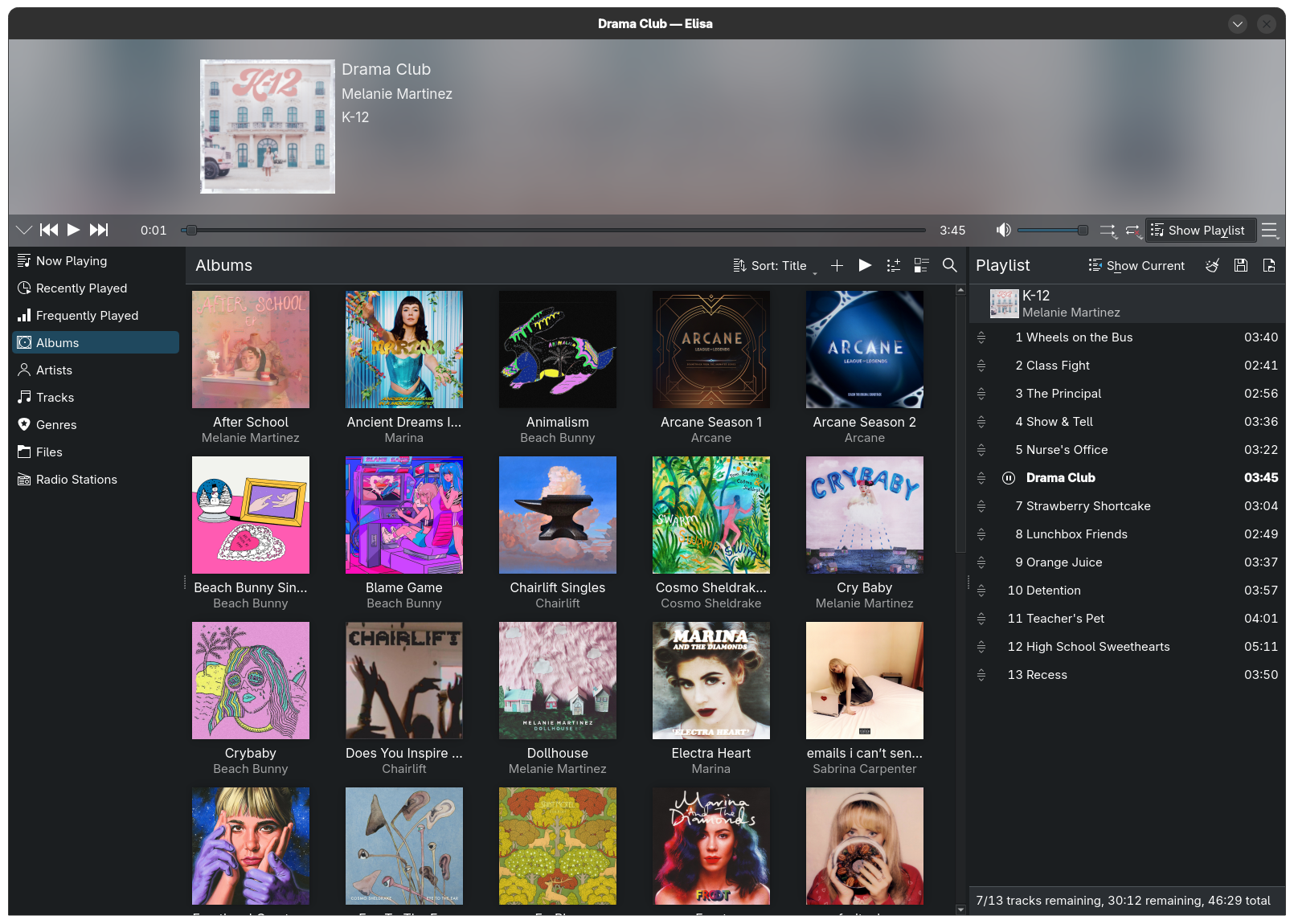Leaflet
- 30 Posts
- 21 Comments

 5·5 days ago
5·5 days agoIt’s actually pretty nice in some situations.
One thing that bites me about Loupe / Image Viewer is that it always goes through images in alphabetical order, despite the sort option you have set in nautilus.
Sushi does go through items using the same sort option set in nautilus.
Though it can be finicky with videos, so I don’t use it for that.

 10·5 days ago
10·5 days agoGood thing I use the Flatpak version of Sushi, I’ll just remove the network permission.
On some systems neofetch would actually run quite slow. Even on my fast system it would occasionally take a second because it hung on one step.

 5·7 days ago
5·7 days agoNixOS was troubleshoot central for me. Not all programs behaved as expected with Nix’s unique design.

 6·12 days ago
6·12 days agoThe authors found and reported vulnerabilities in Pagure and Open Build Service. These vulnerabilities have since been fixed.

 50·12 days ago
50·12 days agoYou don’t need to do anything, these issues have already been fixed.

 111·13 days ago
111·13 days agoI did a bit more research into this and it seems this conspiracy is largely spearheaded by Kiwifarms, so I do feel bad by bringing it up.

 65·13 days ago
65·13 days agodeleted by creator

 1·16 days ago
1·16 days agoSafari has PWAs. They call it “Add to Dock”. Works well in my experience.

 12·16 days ago
12·16 days agoI haven’t noticed any major issues with Webkit on my Mac, only that Safari’s UI sucks.
Unfortunately Gnome Web also inherits most of Safari’s bad UI design. Really the only thing I want from Gnome Web (apart from performance improvements) is to have a bookmarks bars like Chromium and Firefox. Having to go into the bookmarks side bar is a major slowdown. I’ve had to work around it by using a keyboard shortcut for a new tab, typing in the bookmark name, then using arrow keys to navigate to it.

 3·16 days ago
3·16 days agoWhat are its benefits? It basically just feels like Safari, unfortunately including the things about Safari I don’t like.
Main thing I noticed is that it has the built in tracker (and I think ad?) blocking. I use AdGuard on Safari, but sometimes it doesn’t work correctly because AdGuard stopped running in the background.

 181·16 days ago
181·16 days agoHuh, he mains NixOS. Always a bit funny to see someone daily driving a distro different than what they professionally work on.
I thought I recognized that blog, I remember reading his blog TPM+FDE for NixOS back when I was trying NixOS.
There’s a theory that they’re the same person. I’m not sure how reputable it is, I follow them both, but haven’t seen any videos of them.
It certainly is a bit funny how Asahi Lina chose not to take a leadership position and she hasn’t steamed dev work in a month…

 982·16 days ago
982·16 days agoClickbait. The VP Engineering for Ubuntu made a post that he was looking into using the Rust utils for Ubuntu and has been daily driving them and encouraged others to try
It’s by no means certain this will be done.

 9·23 days ago
9·23 days agoI just went on a journey looking at different local music players.
Just tried Rhythmbox. It’s not terrible, but not great either. It looks very bare bones.

Of the ones I’ve tried, I like Elisa the best. I spent a ton of time getting HQ artwork and quality metadata on my files and Elisa really shows that off. Rhythmbox barely shows any artwork. I just have two complaints about Elisa. First, Qt apps just don’t feel right in Gnome for various reasons: fonts are often too thick, icon contrast is bad, and Qt theme is weird for non-Breze. It also has weird scrolling behavior: it has forced scrolling smoothing and acceleration.

Runner up is Sayonara. It’s Qt based, but actually feels decent in Gnome. Overall I like the UI more than Elisa, but unfortunately it doesn’t handle showing my library as well. Artwork is duplicated (it shows albums multiple times if songs in them have different years) and some artwork is inexplicably missing.


 92·24 days ago
92·24 days agoCanonical is making the security patches.
Also, you don’t have to release your source code changes to the public. You only have to release your changes to those who have access to the product.
That being said, Canonical probably does release the source code changes for their security fixes, I just don’t know where.

 49·25 days ago
49·25 days agoYes. Ubuntu has two main repos, main and universe.
main is relatively small and includes everything that comes with Ubuntu by default. Canonical secures this repo with security fixes for everyone.
universe is not officially supported by Canonical. It’s updates are done by community members. However, Ubuntu started a service called Ubuntu Pro / ESM that provides updates for packages in universe. It’s opt in because Canonical wants companies using Ubuntu to pay for Pro in order to help fund Ubuntu. However, Pro is also free for personal use on up to 5 machines, so there’s no reason not to enable it. f it was enabled by default then no one would pay for it.
Haven’t heard about any distros removing Firefox from the repos.
It’s possible that some distros may go an IceWeasel by default route, but I see that as unlikely.

 1·27 days ago
1·27 days agoProblem is that it wouldn’t launch for them. Fedora has an RPM for it, but I don’t think Ubuntu does.












I was wondering about that too. At first I assumed they were only allocated a few of the cores for their testing, but a typo seems more likely.